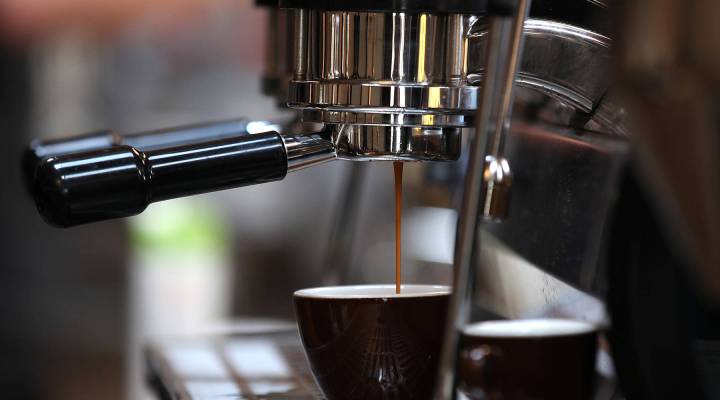
Mismatch in supply and demand sends coffee prices higher

We’ll know more about inflation Tuesday when the consumer price index for June comes out. An increasingly pricey item in that basket of consumer goods we’re all obsessed with? Coffee.
A major drought in Brazil plus the resurgence of post-lockdown Starbucks trips has caused coffee commodity prices to hit their highest level in years. The U.S. Department of Agriculture said it expects coffee consumption globally to outpace production in 2021. How are coffee roasters — and drinkers — reacting?
Cuvee Coffee, a roaster in Austin, Texas, used to make its money selling beans to fancy coffeehouses.
But in 2020, survival depended on the stay-at-home baristas, said founder Mike McKim.
“Our grocery business and our direct-to-consumer business increased exponentially,” he said.
The drought in Brazil is forcing Cuvee to pay more than $3 a pound for beans, which is up from about $2.60 last year. McKim’s going to raise prices, which could be dangerous.
Grocery stores carry shelves full of cheaper brands, and McKim said, “yes, 100%, I think they’re going to be more price sensitive.”
However, McKim’s confident most of his customers will pony up for more expensive beans. Also, 2020 was a big year for consumers to try something new, said Caleb Bryant with the market research firm Mintel.
“We saw a lot of experimentation going on. Consumers either trading up to more premium coffees, attempting to make specialty coffees at home,” he said.
Bryant added price jumps won’t stop most remote workers from paying for fancier blends — it’s the Maxwell House and Folger’s drinkers that may shift to even cheaper store brands.
As far as the local cafe goes, Bryant said a few cents more for an afternoon cold brew will be a small price to pay to get out of the house.
“Seventy-two percent of remote workers say that buying coffee or tea away from home helps break up the day,” he said.
Coffee is famously volatile, and the price spikes are nothing new.
“I’m old enough to remember in the ’70s, it was like oil and coffee,” said Ted Fischer, who researches the coffee industry at Vanderbilt University. “And middle class America felt it. Coffee prices got so high.”
Fischer expects even more volatility in the future. Climate change is making droughts like the one Brazil is facing more frequent.
There’s a lot happening in the world. Through it all, Marketplace is here for you.
You rely on Marketplace to break down the world’s events and tell you how it affects you in a fact-based, approachable way. We rely on your financial support to keep making that possible.
Your donation today powers the independent journalism that you rely on. For just $5/month, you can help sustain Marketplace so we can keep reporting on the things that matter to you.











